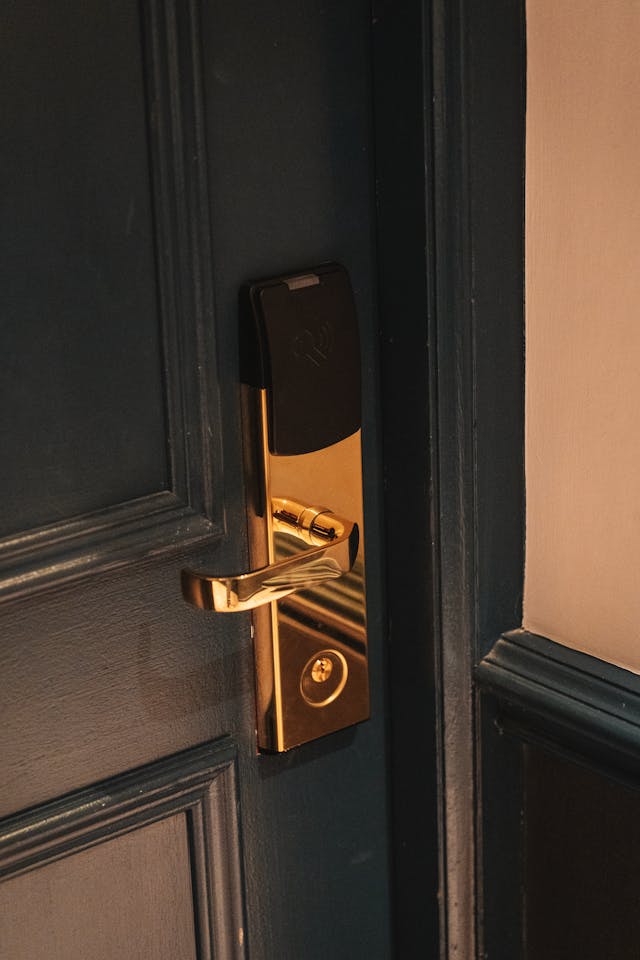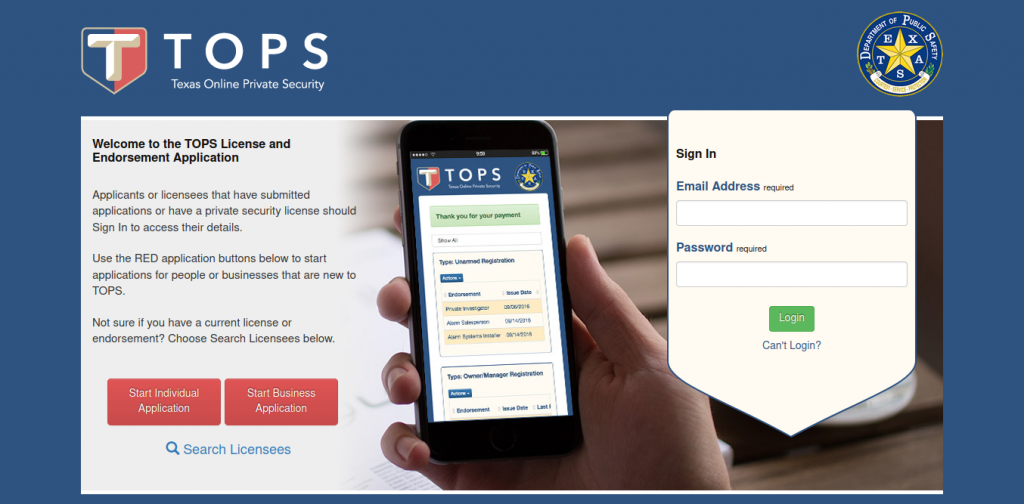Looking to learn how to become a locksmith in Texas? If you are looking to join the locksmith profession in Texas, here’s your guide to find a Texas locksmith trade school, get locksmith training with hands-on experience, and get licensed as a locksmith.
In Texas, locksmiths are regulated by the Texas Department of Public Safety, Regulatory Services Division – Private Security Bureau (PSB). Only licensed individuals and companies can operate as a locksmith in Texas.

Texas: Who is a Locksmith?
Each state has its own laws defining who is a locksmith. According to the Texas regulations, a “locksmith” is defined as any person who sells, services, installs, or maintains mechanical security devices, including deadbolts and locks, and advertises or offers services to the public or represents to the public that the person is a locksmith.
Similarly any person or entity who sells, services, installs, or maintains locks and mechanical security devices, and advertises locksmith services or uses the word locksmith in the company’s name is considered as a locksmith company.
How to Become a Locksmith in Texas?
In Texas, you need a locksmith license from Texas’ Private Security Bureau. The Department of Public Safety (DPS) regulates the private security profession in Texas. The licensing requirement applies to both individuals and companies. Companies also require to have a contractor license / registration.
The general eligibility requirements to get a locksmith license (individual or company) in Texas are:
- Minimum 18 years of age
- Criminal background check by the Department of Justice and the FBI
- Not have been arrested, charged indicted, entered into any pre-trial intervention, or convicted of any Class A misdemeanor or felony unless a full pardon has been granted
- Not have been arrested, charged, indicted, entered into any pre-trial intervention, or convicted of any Class B misdemeanor within the last five (5) years
- Mentally competent
- Not be alcohol or drug dependent
- If in the Armed Services, must have been Honorably Discharged
Texas regulates the locksmith trade, including alarm installation and monitoring. So if you want to work as a locksmith in Texas, including cities such as Houston, San Antonio, Dallas, Austin, Fort Worth, El Paso, Arlington, Corpus Christi, Plano, Laredo, Lubbock, Frisco, Irving, Garland, McKinney, Amarillo, Grand Prairie, Brownsville, Killeen, Midland, Denton, Round Rock, Pasadena, Carrollton, McAllen, Waco, Mesquite, Odessa, Richardson, Pearland, Abilene, College Station, Sugar Land, Lewisville, Beaumont, The Woodlands, League City, Allen, Tyler, Edinburg, New Braunfels, Wichita Falls, San Angelo, and Conroe, you will need to meet the eligibility qualification and get a locksmith license (and an alarm installer license if applicable).
Experience or training requirement for locksmith license
For locksmith license, the applicant requires to qualify in either of the two options.
- Two-year experience as locksmith, or
- Locksmith training (department approved forty-eight hour basic locksmith course and a six hundred hour fundamentals of locksmith course), pass locksmith proficiency test and 1-year full time locksmith work experience
If you have a criminal background, check with the State if your conviction can be overlooked by the Private Security Board (PSB). There are a few convictions that are ignored by the PSB.
Licensing is also required for both access control & alarm installation and services. An individual acts as an electronic access control device installer if the individual installs, maintains, or repairs an electronic access control device. A person registered as an electronic access control device installer may not install alarm systems unless the person is registered under this chapter as an alarm systems installer, and vice versa.
Qualification for Locksmith Company License in Texas
Here’s what the SECTION 35.123. Locksmith Company License of the Texas Administrative Code (Last Updated: May 25, 2023) says about locksmith license qualification.
Pursuant to the Act, the department has determined that an applicant for licensure as a locksmith company, or the prospective company representative of the applicant company, must meet one of the qualifications detailed in this section:
(1) Qualification option one.
Two (2) consecutive years of full-time locksmith-related experience; or
(2) Qualification option two.
(A) Successful completion of a department approved forty-eight (48) hour basic locksmith course and a six hundred (600) hour fundamentals of locksmith course, with the curriculum content detailed in this subparagraph:
(i) Introduction to locksmithing. (ii) The Act and this chapter. (iii) State of Texas and United States Government business requirements. (iv) Key blank identification. (v) Key machine and key duplication. (vi) Codes and code cutting. (vii) Basic lock types. (viii) Basic picking. (ix) Rim and mortise cylinders. (x) Key in knob/key in lever locks. (xi) Deadbolts and mortise locks. (xii) Installations. (xiii) Impressioning. (xiv) Basic master-keying. (xv) Basic safe servicing. (xvi) Small format interchangeable core. (xvii) High security and key control cylinders. (xviii) Automotive opening. (xix) Automotive key generation and programming. (xx) Exit/panic device servicing, replacement, and installation. (xxi) Door closer servicing, replacement, and installation. (xxii) Cabinet and drawer lock servicing, replacement, and installation. (xxiii) Safe installation, moving, and anchoring. (xxiv) Single door access control service and installation.
(B) Successful completion of a basic locksmith proficiency exam that covers a minimum of twelve (12) locksmith subjects and is approved by the department; and
(C) One (1) year of full-time locksmith related experience.
Source Note: The provisions of this §35.123 adopted to be effective May 6, 2014, 39 TexReg 3608; amended to be effective December 29, 2019, 44 TexReg 8032
How to Get Locksmith License in Texas?
Texas requires locksmith aspirants to meet a minimum criteria before being granted license to operate as a locksmith in the state.
Texas Department of Public Safety issues and regulates the following locksmith-related licenses for individuals:
- Alarm Installer
- Alarm System Monitor
- Locksmith
- Owner
All individual, including locksmiths and installers, (with exception of some instructors) must be licensed and affiliated with a company or entity licensed by the Department.
Only those individuals who meet the minimum qualification can apply for a locksmith license or locksmith company (in which case the owner has to qualify).
If you are just starting out, you should seek apprenticeship with a local locksmith company. You need to be employed for 2 or more years in full-time capacity before you can apply for your license.
The quickest and least expensive way is to find a reputable locksmith shop and work as an apprentice for a couple of years. Your locksmith company will register you with the state and get you a locksmith pocket card for legally working as an apprentice.
Alternatively, complete the mandated locksmith training courses: 48-hour basic locksmith course, 600 hours of locksmith fundamentals course with an approved trade school, and take the locksmith proficiency exam. Work with a licensed locksmith company full-time for 1 year. Once you have completed the course, passed the test and gained 1-year full-time experience, you can apply for a locksmith license in Texas.
You can find a recognized trade school for your locksmith training here at https://tops.portal.texas.gov/ Click on the Search Licensees link to search for training / trade schools too. Make sure that you search for your city with the training option selected.
To apply for a locksmith license, start by visiting the Texas Department of Public Safety website, and follow the link to Texas Online Private Security (TOPS).

You can also visit the Texas Online Private Security (TOPS) website directly.
In the TOPS website, start your online application process by clicking on the Start Individual Application or Start Business Application button (as applicable).
When you have the necessary qualification (2-year work experience or training with 1-year work experience), contact the PSB to schedule a Qualified Managers exam. If you qualify the exam, you can become the Qualified Manager of your own locksmith company.
The PSB’s Qualified Managers exam requires you to be familiar with the laws governing the locksmith industry. Texas locksmiths are regulated by the Texas Occupations Code, Chapter 1702 and the Texas Administrative Code, Chapter 35. You can find the rules and codes in Texas Private Security Statutes & Rules.
If you want to have your own locksmith shop, you will have to pass a federal criminal background check, and your work experience and/or education will be verified. You will need to maintain general liability insurance and security service contractor license.
| Non-Commissioned Security Officer, Private Investigators, Alarm Installer, Alarm System Monitor, Locksmith & Electronic Access Control Device Installer (Including Gate Operator) | License Fee |
|---|---|
| Original / Renewal | $37 |
| Renewal with late fee (0-90 days) | $52 |
| Renewal with late fee (90 days +) | $67 |
| FBI Fingerprint Check | $28.25 |
| Duplicate Pocket Card ($15 duplicate card fee + $2 subscription fee) | $17 |
| Employee Information Update ($15 update fee + $2 subscription fee) | $17 |
| Reinstatement of Suspended License | $150 |
| Assignment of Business License ($150 company assignment fee + $5 subscription fee) | $155 |
| Company Name Change ($75 company name change fee + $2 subscription fee) | $77 |
You can find the complete fee schedule here. Fee exemptions are available for active duty military, spouses and veterans discount.
This agency issues and regulates the following company and school license types:
Company Licenses
- Class A – Private Investigation Company License
- Class B – Security Contractor Company License includes one or more of the following: Alarm, Armored Car, Courier, Electronic Access, Guard, and Locksmith
- Class C – Private Investigation and Security Contractor Company License
| Class B Company License (Locksmith Company) | License Fee |
|---|---|
| Original / Renewal | $412 |
| Renewal with late fee (0-90 days) | $612 |
| Renewal with late fee (90 days +) | $812 |
Locksmith License Renewals & Continuing Education
Locksmiths and qualified managers have to get their licenses renewed.
In Texas, locksmiths must complete continuing education to maintain their license. According to the Texas Administrative Code, Chapter 35.291 – Continuing Education Courses, locksmiths are required to complete a total of 16 hours of continuing education every two years.
In the first year, seven (7) hours for learning locksmith-related subjects, and one (1) hour must cover ethics. In the second year, eight (8) hours in a subject matter that relates to locksmithing.
Qualified Managers may take a one (1) hour course covering changes in laws and rules applicable to the security industry, as a substitute for the ethics requirement.
